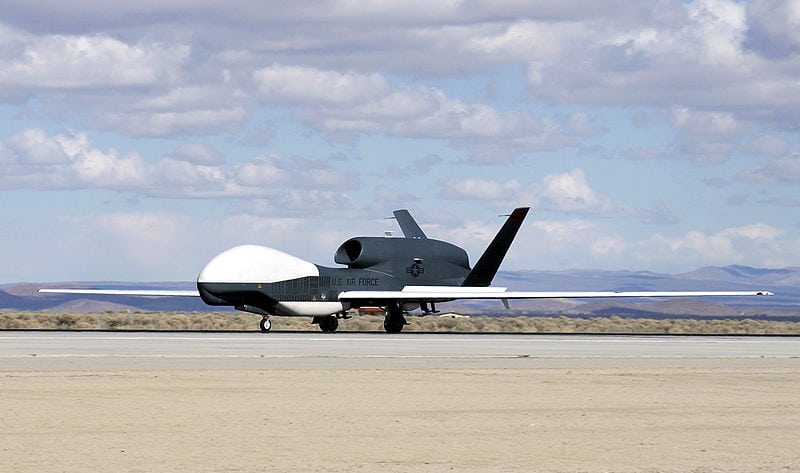Latest News

RQ-4 Global Hawk UAV at Edwards Air Force Base in California. Photo: U.S. Air Force/Chad Bellay.
The NASA Armstrong Flight Research Center (AFRC) has awarded UltiSat a contract to support Global Hawk communications for NASA’s Airborne Science Program. Under this contract, UltiSat will provide commercial Ku-band satellite capacity with coverage of the continental United States, Atlantic and Pacific areas of operation.
NASA AFRC operates Global Hawk Unmanned Aerial Vehicle (UAV) aircraft that are used for atmospheric research. According to the organization, the real-time data helps scientists on the ground better assess and monitor tropical storms as they develop. This data can greatly enhance the ability to forecast storm tracks and potential landfall points. The enhanced fidelity of these projections significantly improves the accuracy and timeliness of the advanced notifications issued to those most likely to be affected.
“We are extremely pleased that our modest contribution to the Airborne Science Program will help to enhance the ability to forecast storm strength and path, provide more accurate warnings to the most likely affected populations, and in the end save lives,” said Steve Roth, UltiSat program director.
Get the latest Via Satellite news!
Subscribe Now